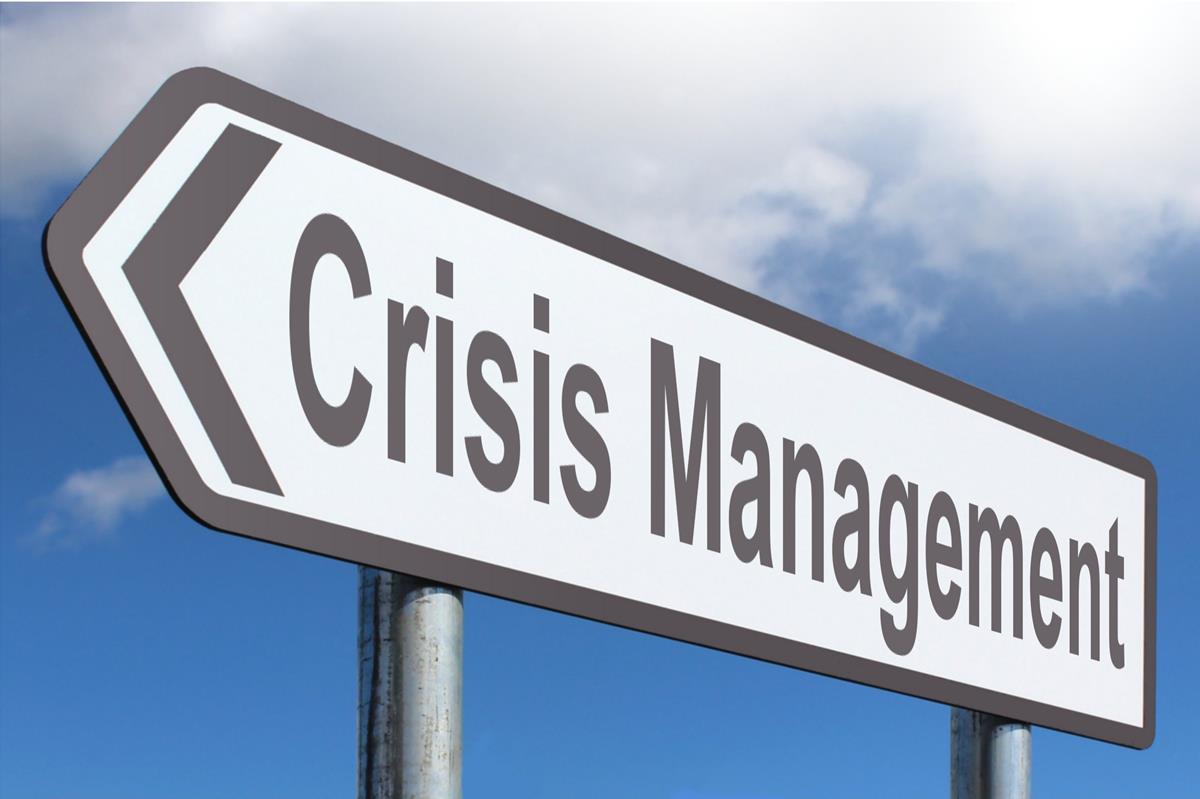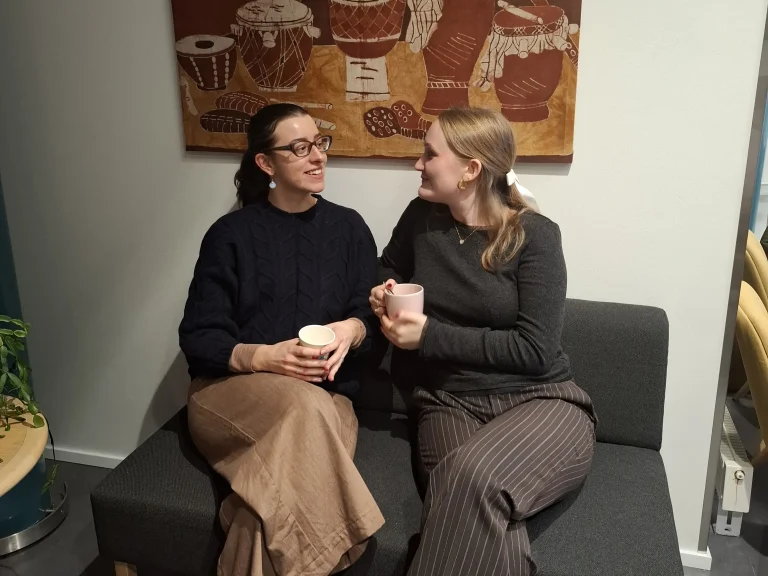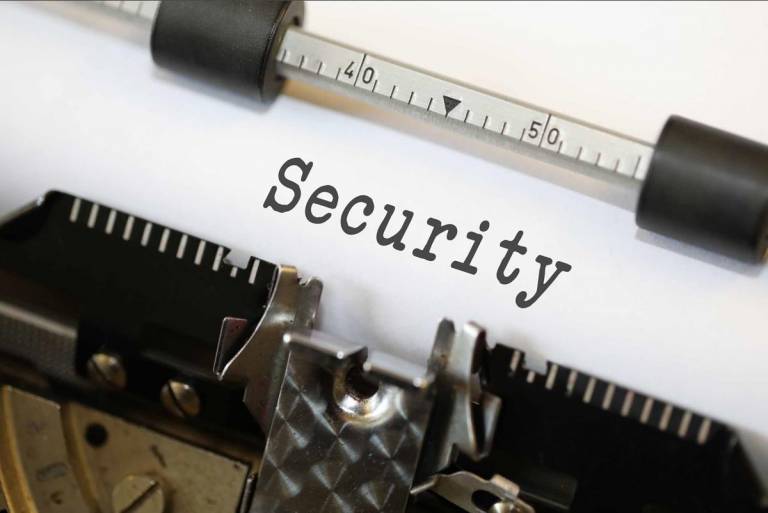By following news and social media one can easily conclude that our time is filled with natural, man-made, political and societal crises and disasters. Despite of the fact that the general quality of living and well-being has constantly increased in recent decades and centuries, the modern post-industrial “risk society”, the complex dependency on high tech development and the prospect of increasing social inequalities seems to increase our sense of vulnerability at the same time. Moreover, planetary processes such as global warming, ecological degradation, pandemics, and other emerging existential risks seems not just to challenge the sustainability of our lifestyle (see UNDP 2020; Bostrom 2013), but they also raise the political and societal stakes at hand when we are discussing crisis management and preparedness.
Indeed, it seems we are witnessing a shift from proactive and preventive policies tackling the root causes of crises and disasters towards a more reactive paradigm of general preparedness and resilience (see Aradau 2014; Dunn cavelty et al. 2015). These dilemmas or tensions provided the intellectual and societal backdrop for the intensive course SAFER.SG.350 Crisis Management and Leadership organized at Tampere University in September 2021.
The course is part of the curriculum in the MD programme in Security and Safety Management (SAFER) at the Faculty of Management and Business. The key idea of the course is to locate crisis management as part of wider field of security governance, including risk governance as well as disaster and emergency management. In addition of dissecting the very notion of crisis as a social and material phenomenon, the course also delved into the intricate processes and mechanisms of leadership, crisis communication, sensemaking, strategic planning and operational level management in various types of crises, emergencies, and catastrophes.
Back to the campus!
As the overall situation with the Covid-19 pandemic turned better during the summer 2021 (at least for a while), it was possible to organize the course live at the campus. The course consisted of four three-hour sessions, including two introductory lectures and six visiting expert lectures, all with plenty of time for general discussion between the students and the lecturers. In addition of writing reflection papers on basis of the lectures and discussions, the students were also asked to watch one crisis movie as a pre-assignment and, as a follow-up assignment, to write a literature review on the two books that provided the analytical and theoretical backbone of the course:
- Pursiainen, Christer (2018). The Crisis Management Cycle. London: Routledge.
- Johannessen, Stig (2018): Strategies, Leadership and Complexity in Crisis and Emergency Operations. London: Routledge.
The introductory lectures given by Sirpa Virta and Tapio Juntunen dealt with the very basic question “what is a crisis?”. Basic definitions and various typologies of crises and disasters were discussed, as well as the multi-disciplinary basis of crisis management research. Virta also discussed on the development of Finland’s crisis leadership and management system whereas Juntunen presented the components of crisis management cycle (see Pursiainen 2018), common strategic and operation challenges of crisis management (see e.g. Boin et al. 2009; Drennan & McConnell; Fearn-Banks, 2017) as well as key future research areas and puzzles in crisis management research.
The expert lectures were divided under two main themes: 1) Military and civilian crisis management; 2) organizational preparedness and leadership during emergency operations.
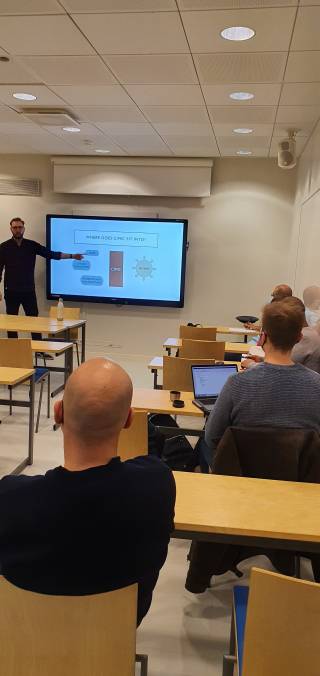
Military and civilian crisis management
During the second session Planning Officer Mikael Mattila from Southwest Finland Emergency Services presented his experiences from NATO’s Civil-Military (CIMIC) exercises whereas Safety Coordinator Mike Ros from Hanken School of Economics presented similar experiences from the GLOBE Simulation Game organized by the Ostbayerische Technische Hoghschule at Regensburg – a simulation that some of the students from the course also planned to participate in the future. One of the key topics that was discussed during the session concerned the mechanisms that would increase the institutionalization of organization-level learning on basis of prior crisis experiences and exercises.
The next session was based on guest lectures given by Director Anne Palm from Wider Security Network (WISE) and Chief Senior Specialist and Head of Research Jyrki Ruohomäki from Crisis Management Centre Finland. In addition of presenting the activities of WISE, Palm discussed about Comprehensive Crisis Management and the importance of well-functioning coordination between civilian and military actors in international peacekeeping/crisis management operations.
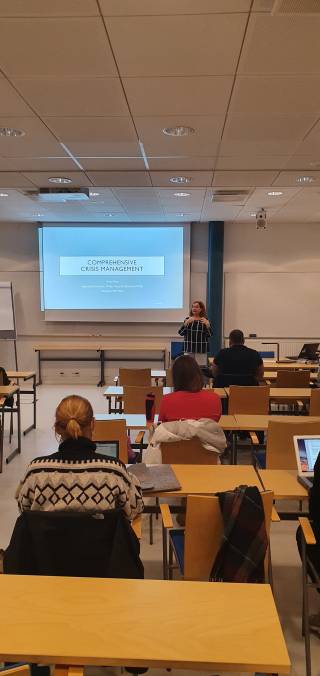
Palm also encouraged the students to challenge the somewhat simplistic understanding of crisis management cycle as an ideal-typical linear process. In reality, and especially in the context of international civilian crisis management, the process of crisis “cycle” is usually more complex than the linear cycle model with distinctive phases seems to suggest.
In his topical lecture, titled “The futures past of crisis management after Afghanistan”, Jyrki Ruohomäki gave a thought-provoking overview on the origins and consequences of the serious mismatch of supply (the western-centric liberal ambitions of the “donor countries”) and demand (the actual needs and practical understandings of the local communities in Afghanistan) that characterized the international crisis management operation in Afghanistan during the last decade or so.
Ruohomäki also discussed about the conflicting motives behind the two main traditions of international crisis management – the realist and liberal traditions – and reflected on the rather gloomy future of crisis management and peacekeeping, at least when understood in terms of exporting liberal peace.
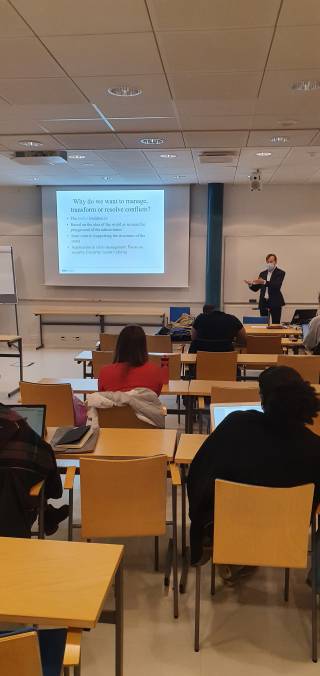
Preparedness at regional and organizational level
The final session of the course also consisted of two expert lectures, this time with a focus on regional and organization level preparedness. Director for Preparedness Risto Honkonen from Tampere University provided an informative and detailed presentation on the objectives of Tampere University’s practices of preparedness, including the legal and definitional basis of continuity planning in the university. Honkonen also discussed about the real world experiences during the Covid-19 pandemics and how it had affected to preparedness thinking in Tampere University.
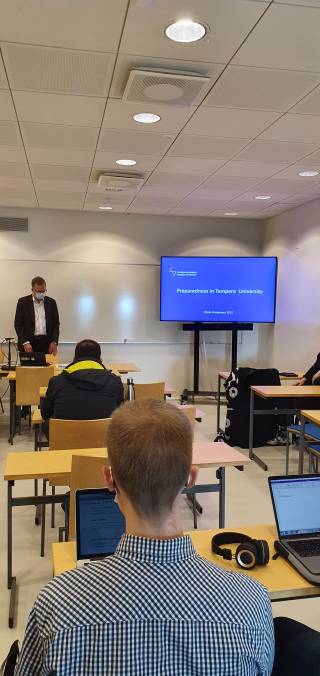
Before ending the final session with concluding discussion, Senior Inspector at Fire and Rescue Services Mira Leinonen from Regional State Administrative Agency in Southern Finland gave the last visiting lecture. In her lecture Leinonen gave a wide-ranging portrait on regional preparedness, the role of the rescue services and the concept of civil defence in Finland.
In addition of explaining the rather complex network of partnerships and cooperation required between regional and local level officials and rescue services as well as with private companies and civil society actors in preparing for major accidents, Leinonen also discussed about the increasing importance to take the effects of disinformation into account in regional preparedness planning.
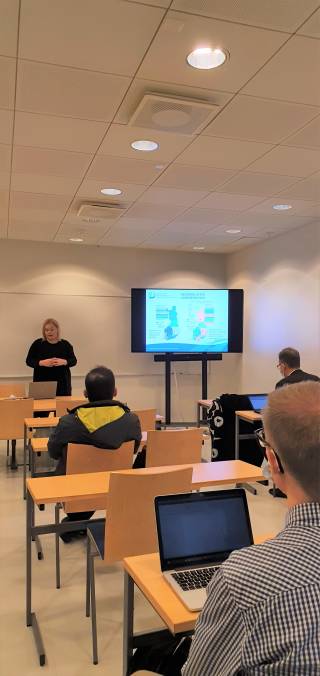
Student feedback
The students were mostly from our own SAFER MD programme, but there were also students from other master’s degree programmes at Tampere University as well. According to the course feedback the students seemed to enjoy the course. The average rating of the overall assessment for the course given by the students was 6.6 (on a scale 1–7; 1: Below average – 7: Excellent). Here’s some free-form answers given by the students (the course was arranged completely in English, but the Finnish-speaking students had the chance to give the feedback in Finnish):
“I believe the course has fulfilled its objectives of providing knowledge (theoretically and empirically) about crisis management and leadership. Both literature sources offered to read and use for analysis were interesting and useful. The movie analysis encouraged students to participate actively and their voices were heard attentively. Guest lecturers were interesting and the information they provided was important and tackled very recent issues of crisis management, locally and internationally.”
“The best part was the lectures. The discussion during the lectures and the honest real life examples of crisis management by experts gave a lot to think about compared to assignments like reading a book or doing an essay etc.”
”Crisis Management opintojakso oli toteutettu erittäin monipuolisesti, ja kokonaisuus oli kattava ja mielenkiintoinen. Itsenäisen opiskelun osio ja luennot tukivat erittäin hyvin toisiaan. Lisäksi luennot muodostivat todella toimivan kokonaisuuden: teoriaa ja käytäntöä eri näkökulmista (kansainvälisellä, paikallisella ja organisaation tasolla). Kurssilla annetut tehtävät olivat monipuolisia ja tukivat aitoa oppimista: elämyspohjainen oppiminen ennakkotehtävän muodossa tuki hyvin kurssin tavoitteiden saavuttamista.”
”Opintojakso oli mielestäni erittäin onnistunut sekä sisällön että käytännön toteutuksen osalta. Teoriaan ja yleiseen tasoon keskittyneet ensimmäiset luennot sekä kirjallisuus muodostivat hyvän kokonaisuuden vierailijaluennoitsijoiden spesifimpien ja käytännönläheisempien esitysten kanssa. Myös elokuvien kautta tehtävä alkupohdinta ja aiheen pyörittely oli hyvä ja omalaatuinen lisä kurssille. Tiivis kahden viikon lähiopetus yhdistettynä kirjallisiin suorituksiin on erittäin toimiva toteutustapa ja läsnäolopäivät olivat tehokkaita, mutta ei kuitenkaan liian pitkiä. Erittäin mielenkiintoinen ja toimiva kokonaisuus!”
Tapio Juntunen, university instructor (security studies)
References
Aradau, Claudia (2014). “The promise of security: resilience, surprise and epistemic politics”, Resilience: International Policies, Practices and Discourses 2(2), 73–87.
Boin, Arjen, ‘t Hart, Paul & Sundelius, Bengt (2009). The Politics of Crisis Management: Public Leadership Under Pressure. Cambridge: Cambridge University Press.
Bostrom, Nick (2013). “Existential Risk Prevention as Global Priority”, Global Policy 4(1), 15–31.
Drennan, Lynn T. & McConnell, Allan (2007). Risk and Crisis Management in the Public Sector. London: Routledge.
Dunn, Cavelty, Myriam, Kaufmann, Mareile & Kristensen, Kristian S. (2015). “Resilience and (in)security: Practices, subjects, temporalities”, Security Dialogue 46(1), 3–14.
Fearn-Banks, Kathleen (2017). Crisis Communications: A Casebook Approach. 5th edition. London: Routledge.
Johannessen, Stig (2018): Strategies, Leadership and Complexity in Crisis and Emergency Operations. London: Routledge.
Pursiainen, Christer (2018). The Crisis Management Cycle. London: Routledge.
UNDP (2020). The Next Frontier: Human Development and the Anthropocene. Human Development Report 2020. New York: UNDP.


